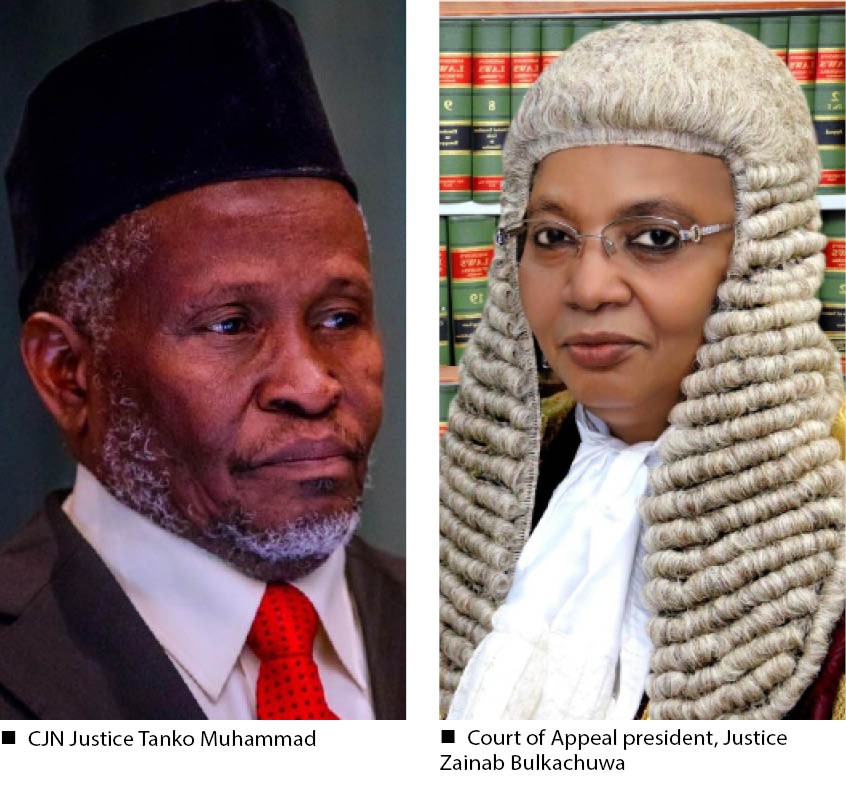There is a belief in some quarters that the quality of judgments delivered by justices of the highest courts in the land, that is the Supreme Court and the Court of Appeal, have diminished in the past few years and necessary action must be taken to address that.
In fact, some senior lawyers have warned that Nigerians will continue to experience poor quality of judgments at the highest courts if nothing is done either by way of enhancing the appointment process or reducing the workload on the judicial officials.
Section 8 of the Supreme Court Act and Section 287 of the Nigerian Constitution, 1999 makes the decision of the Supreme Court to be enforceable in every court and authorities throughout the federation. This makes it necessary that judgments delivered by the apex courts must be valid in reasoning and quality.
The Chief Justice of Nigeria, Justice Tanko Muhammad has cited the workload as the major cause of the problem. During the governorship election appeals in January, he also stated, “we have to do justice for every case that demands justice. I hope we don’t become blind before then.”
He also blamed lawyers for the type of fonts they used in filing their applications before the court, which he said made it difficult for the justices to deal with.
“If it comes to spacing, please many of you are writing single spacing. We find it really difficult sometimes. Why don’t you do double-space so that those things can be read with minimum difficulty. Some of the briefs are too poorly written. If there are five respondents or appellants, I have to read each and every one of them. Please bear with us we are human beings like you,” he said.
Dayo Akinlaja (SAN) said the heavy workload on the justices is affecting the “thoroughness of their outputs.” He added, “With increasing workload, the possibility of giving attention to details could be jeopardised. The workload of course is immensely responsible for the delay in conclusion of cases in court.”
He further stated, “Without a speck of doubt, our judicial system would fare a lot better if the prevailing situation of unbearable workload is redressed.”
However, Ebun Adegboruwa (SAN) said the quality of judgments in the courts has dropped because the country is missing judges of courage and intellect who sat at the bench in the past.
He therefore called for a declaration of state of emergency in the judiciary to improve funding, technology, and independence, and restore public confidence in the process.
“When you remember the periods of Justices Ademola, Kayode Eso, Uwaifo, Chukwudifu Oputa, Irikefe, Nnaemeka Agu, who would speak truth to power; who would write judgments that people would read and know that there are judges sitting in the court.”
“So, if we go back to that golden era of our judicial life, we will end impunity now. I must call upon our judicial officers; our courts, to assert the law without fear or favour; without ill-will and without any trepidation. They should be able to rescue Nigeria and protect our constitution. They should not be afraid because Nigerians, the law, and the international community are supporting them,” Adegboruwa said.
For his part, the quality of judgments on regular matters has not dropped but on election matters, which have a lot of political considerations. He added that judgments should be able to consider the issues in contention, consider the facts and evidence as well as the argument of the parties and “decide the issues based on the law, without fear or favour.”
E.M.D. Umukoro Esq said a good judgment should be able to examine the statement of the facts, identification of the legal issues, and cases cited by the parties.
He however lamented that the quality of judgments in Nigeria has dropped due to several reasons such as, the quality of law graduates, reduction of qualified passionate judicial officers, nepotism, favouritism and tribalism in the appointment of judicial officers, poor quest to study and increase capacity, and corruption.
Eno Cyprain Ph.D said he hoped to see a judgment that is both fair and judicial. “That is when a reasonable man believes it meets justice at the same time without compromising the tenet and inner morality of the law in the strict sense – an complementarity of equity and harshness of the law.”
Hamid Ajibola Jimoh Esq. argued that the rush among lawyers to appeal cases even the most irrelevant ones to the Supreme Court as part of the requirement for the rank of Senior Advocate of Nigeria, is one of the major reasons the Court of Appeal and Supreme Court are congested.
In his view, Richard Ebie Esq. said “the solution is to decongest the courts and make justice available to the people; build more courts and appoint more judges. There are thousands of lawyers in this country looking for judicial appointment but cannot get it. It is not as if Nigeria as a state does not have enough funds to build more courts.”

 Join Daily Trust WhatsApp Community For Quick Access To News and Happenings Around You.
Join Daily Trust WhatsApp Community For Quick Access To News and Happenings Around You.


